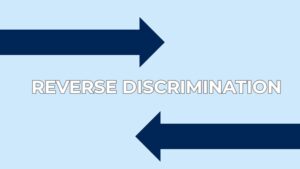The New York City Commission on Human Rights released a new guidance that makes clear what constitutes gender identity and gender expression discrimination under the NYC Human Rights Law, making it one of the strongest in the nation in protecting the rights of transgender and gender non-conforming individuals. Although discrimination based on gender identity and expression has been illegal under the City’s law since 2002, previous guidelines never articulated the range of violations of the law. The guidance, issues on December 21, provides bold and explicit examples of violations, sending a clear message to workers, employers, and the general public what the City considers to be discrimination under the law. The guidance also offers best practices on how employers can comply with the law, and avoid lawsuits based on LGBTQ discrimination.
“New York has always been a diverse and welcoming city and our laws are designed to protect every New Yorker, regardless of their gender identity,” said Mayor Bill de Blasio. “Today’s new guidelines strengthen those laws by ensuring that every transgender and gender non-conforming person in New York receives the dignity and respect they deserve. I look forward to working with Commissioner Malalis and other stakeholders to continue enhancing protections for our city’s most vulnerable.”
“Far too often, transgender and gender non-conforming individuals suffer discrimination, harassment, and violence on a scale many cannot imagine,” said Carmelyn P. Malalis, New York City Human Rights Commissioner. “New York City does not and will not tolerate discrimination on the basis of gender identity or gender expression. Today’s guidance makes it abundantly clear what the City considers to be discrimination under the law and the Commission will continue to aggressively enforce protections to make that promise a reality. Every New Yorker deserves to live freely and safely, free from discrimination.”
“In New York City we protect the rights of transgender and gender non-conforming people against LGBTQ discrimination – in the workplace, in the supermarket, and on the street,” said Counsel to Mayor Maya Wiley. “Today’s bold new guidelines send a clear message that we will uphold the dignity of our residents, no matter their gender identity. The Commission under the Chair’s leadership is redoubling its commitment to protect every New Yorker from unlawful discrimination.”
The Commission’s guidance lists several ways employers, landlords, and business owners could violate the Law on the basis of gender identity and expression, including:
- Intentionally failing to use an individual’s preferred name, pronoun or title. For example, repeatedly calling a transgender woman “him” or “Mr.” when she has made it clear that she prefers female pronouns and a female title.
- Refusing to allow individuals to use single-sex facilities, such as bathrooms or locker rooms, and participate in single-sex programs, consistent with their gender identity. For example, barring a transgender woman from a women’s restroom out of concern that she will make others uncomfortable.
- Enforcing dress codes, uniforms, and grooming standards that impose different requirements based on sex or gender. For example, enforcing a policy that requires men to wear ties or women to wear skirts.
- Failing to provide employee health benefits that cover gender-affirming care or failing to provide reasonable accommodations for individuals undergoing gender transition, including medical appointments and recovery, where such reasonable accommodations are provided to other employees. (Federal and New York laws already require certain types of insurance to cover medically-necessary transition-related care.)
Violations of the New York City Human Rights Law could result in civil penalties of up to $125,000 for violations, and up to $250,000 for violations that are the result of willful, wanton, or malicious conduct. There is no limit to the amount of compensatory damages the Commission may award to a victim of discrimination.
New York City’s Human Rights Law now goes further in protecting the rights of transgender and gender non-conforming people than many large municipalities with gender identity protections. Cities such as Washington, D.C., San Francisco, CA, and Philadelphia, PA, do not articulate such specific protections under their laws.
The provision on dress code and grooming standards issued today goes further than even U.S. federal courts in protecting the rights of New Yorkers. Federal courts have upheld employment policies that require female bartenders to wear make-up or male servers to wear ties. Now, the Commission on Human Rights will find it a violation of the law if employers enforce strict dress codes and grooming standards for men and women based on gender or sex stereotypes.
Experts estimate that roughly 25,200 transgender and gender non-conforming people call New York City home. According to a recent survey, 75 percent of transgender or gender-non conforming New Yorkers reported harassment and mistreatment in the workplace, 20 percent were refused a home, 17 percent were refused medical care, and a staggering 53 percent were verbally harassed or disrespected in a place of public accommodation, including hotels, restaurants, buses, airports and government agencies because of their gender identity.
The New York City Human Rights Commission is the City agency charged with enforcing the New York City Human Rights Law, which protects against citywide discrimination based on 16 protected categories, including gender and gender identity. The Commission will investigate and prosecute all instances of gender-identity discrimination based on this legal guidance.
Workers who believe they have been discriminated against on the basis of gender identity or gender expression at work, in housing or in public accommodation can file a Complaint with the Commission on Human Rights or go to court and file a claim under the New York City Human Rights Law.




